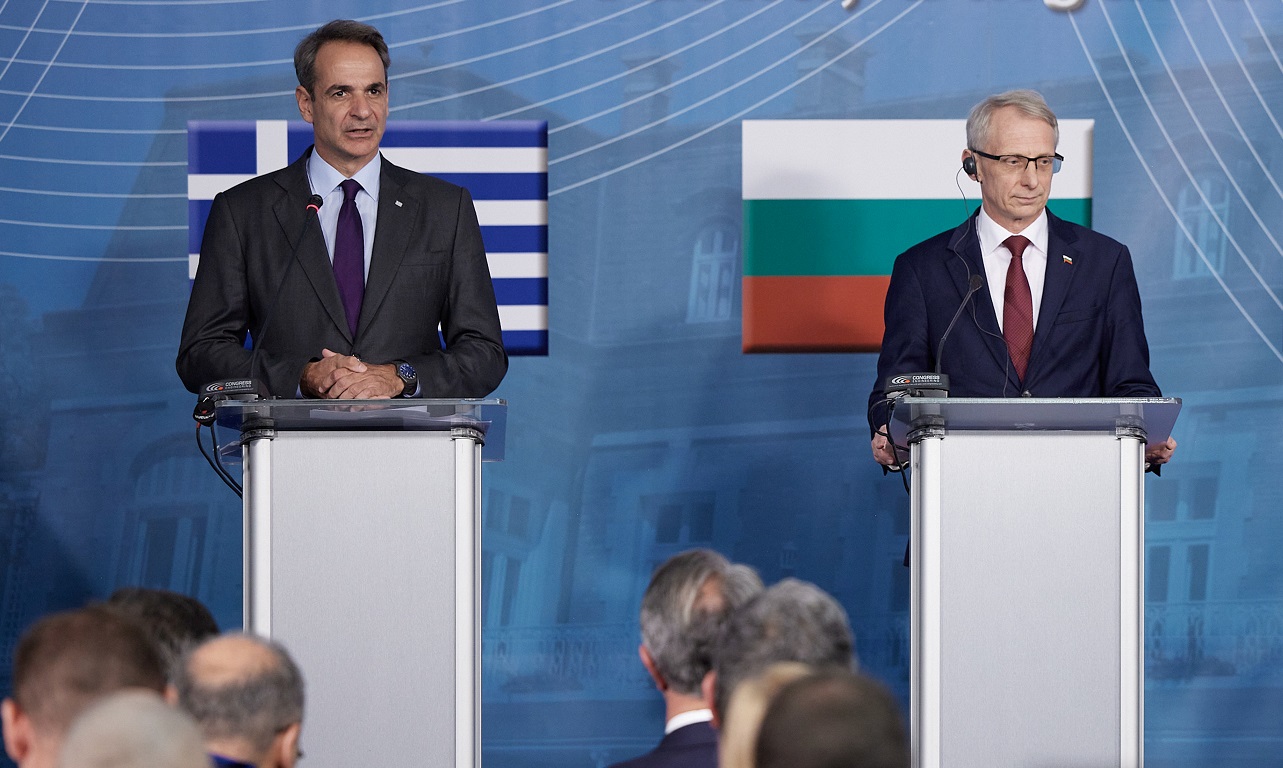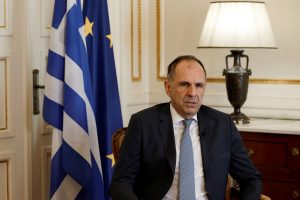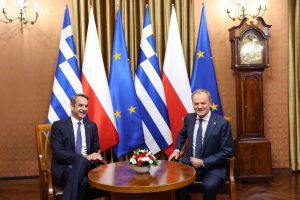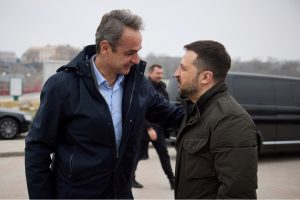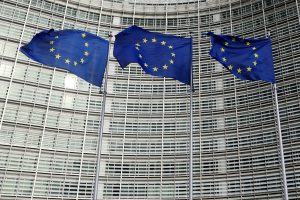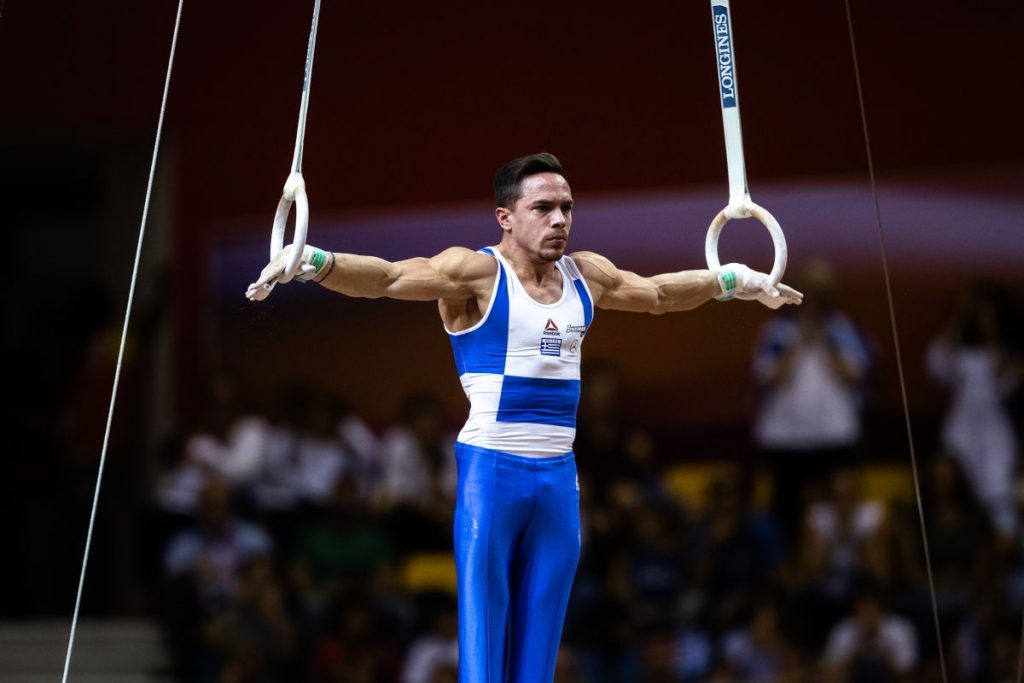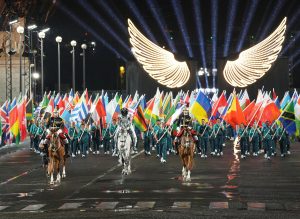Denkov, a noted researcher and professor of physical chemistry, also touched on the sensitive issue of the Republic of North Macedonia’s EU enlargement process, and what Sofia expects the latter to implement so its membership proceeds, as well as burgeoning Greek-Bulgarian relations. In terms of the latter, he cited cooperation that’s also complementary of the “Three Seas Initiative”, namely, transports, energy, digital and communication projects.
You were among the EU leaders who attended the dinner hosted by the Greek Prime Minister to discuss the European perspective of the Western Balkans. What do you think were the most significant outcomes of this meeting? Do you think the debate on enlargement has gained some positive momentum?
The joint declaration for the participants is the main formal outcome of the meeting. It considers two main topics: the support for Ukraine in her fight against the Russian invasion and enlargement, including the Western Balkans, Ukraine and Moldova. Informally, the fact that all these countries could sit down and discuss these two topics in a constructive way and reach common conclusions is remarkable. Such a meeting would have been impossible in this format before the war in Ukraine. This is a very clear indication of how the invasion changed perceptions of security in Europe and the perspective on cooperation between countries looking for a common future in the European Union.
I used the opportunity to thank Prime Minister Kyriakos Mitsotakis for his initiative in organizing this meeting. It was a very ambitious goal that was fully achieved in the discussions, which were very open during the meeting, as well as in the final text of the declaration, which is quite strong and was supported by all countries. This was a very fruitful meeting, and I am very happy to announce that we will be having our next meeting very soon: on 9 September, we will open the Thessaloniki International Fair together. This will be our third bilateral meeting over the past two and a half months, beside the other meetings we had in the framework of the European Council and NATO.
Resolving bilateral disputes is paramount for the enlargement process to proceed. What has to be done on this front, and in relation, too, to the bilateral issue between Bulgaria and North Macedonia?
Bulgaria remains among the most active supporters of the EU integration of the Western Balkans, including the Republic of North Macedonia. However, the Bulgarian government expects the Republic of North Macedonia to proceed with the relevant constitutional changes in order to include the Bulgarian ethnic community living within its borders. As per the conclusions of the Council of the EU from July 2022, North Macedonia is expected to demonstrate swift progress in the implementation of the agreed negotiation framework and bilateral protocols of the joint sessions of the intergovernmental committee following article 12 of the Treaty of Friendship, Good Neighborliness and Cooperation signed by the two countries in 2017.
The EU also needs to prepare for enlargement. What do you think is important in this respect?
It is important to refine the mechanism of taking decisions. The European Union should define very precisely those areas, such as foreign policy, in which unanimity is needed, as opposed to the other areas in which, for example, a two-third majority is sufficient to take decisions. This is a very delicate procedure that will require deep discussion and some changes to the Treaty on European Union. Therefore, it will take time, but the discussions have already started and they should be deepened over the following months, maybe years, so we can have a better decision-taking system.
Greece and Bulgaria are on course for increasingly close relations, especially following their cooperation in natural gas and energy in general. The cooperation between Athens and Sofia also extends to the field of airspace surveillance. What do you think the next steps will be in the collaboration between the two countries?
The potential for further development of our relations in all areas, including the economy, culture, transport and energy is tremendous. One of the main directions of cooperation is the development of the corridors from South to North, meaning from Greece through Bulgaria, then Romania. They could go even further, to Moldova and Hungary as well in order to complement the existing corridors West to East. This creates new opportunities, first for Europe as a whole and second for the cooperation between the countries involved. In this way, we can complement the Three Seas Initiative with other specific transport, energy, digital and communication projects. All of these become particularly important in the context of the war in Ukraine and the development of the defense system on NATO’s Eastern flank.
You recently decided to support Ukraine militarily. Are you planning further support measures?
Currently, we are exploring how to further support Ukraine without jeopardizing our defense capacity. In particular, we are trying to develop our defense industry, which can help to fill the current deficit in munitions across Europe. We are working hard to modernize the Bulgarian army in the context of strengthening NATO’s Eastern flank, as well.
Our support for Ukraine is not only military. We have signed an agreement in the energy sector and we have a specific project under discussion for helping Ukraine develop their energy sector after the war. Bulgaria is also participating actively in the evaluation of the ecological consequences of the war in Ukraine. We are ready to participate in the remediation of the ecological disasters that should be recovered after the war.
Around 84,000 Ukrainian refugees are currently in Bulgaria. Special humanitarian aid is in place to support their habitation, to ensure their children get an education, and so the adults can be included in the labor market. We have sent humanitarian aid to Ukraine several times, in some cases in the form of specific items that were needed, in others in the form of monetary participation in international funds to help Ukraine.

